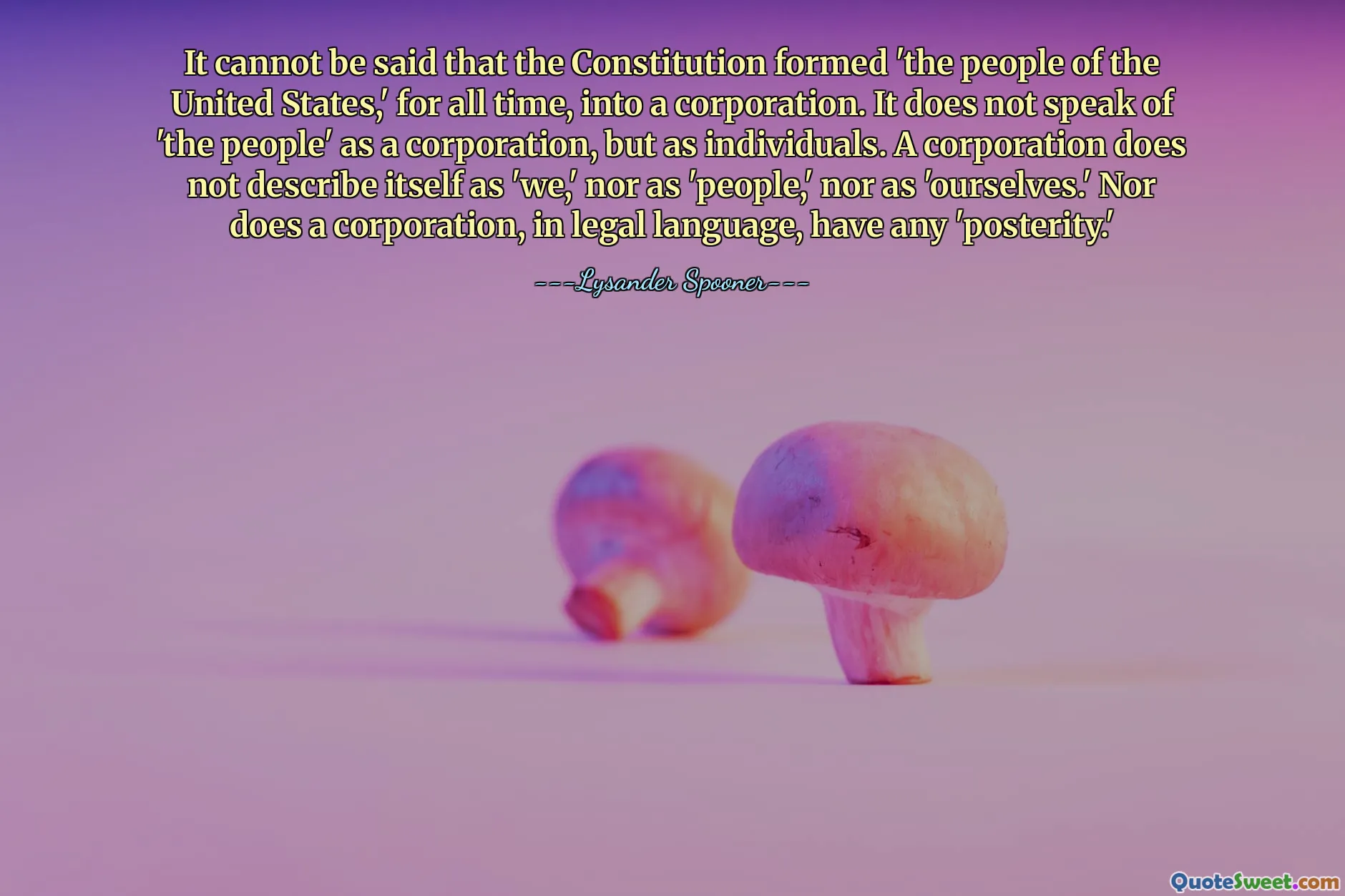
It cannot be said that the Constitution formed 'the people of the United States,' for all time, into a corporation. It does not speak of 'the people' as a corporation, but as individuals. A corporation does not describe itself as 'we,' nor as 'people,' nor as 'ourselves.' Nor does a corporation, in legal language, have any 'posterity.'
This quote highlights a fundamental distinction between individuals and corporations, emphasizing that the Constitution's recognition of "the people" pertains to individuals rather than a corporate entity. The assertive tone underscores that, although the government operates under constitutional principles, it does not transform the populace into a corporate body. From a legal and philosophical standpoint, this distinction is crucial because it determines how rights, responsibilities, and sovereignty are understood. The notion that 'the people' are recognized as individuals reinforces the idea that constitutional rights are personal and inalienable, not transferable or reducible to a corporate identity. Corporations, as legal entities, are artificial constructs created for specific purposes, lacking the natural attributes like posterity or personal identity. This distinction also influences how governance operates, ensuring that power ultimately rests with individual citizens rather than a corporate class. Recognizing this difference helps preserve the concept of individual liberty and accountability within a democratic framework. It also provides clarity on the scope of rights and duties that citizens and government hold. In contemporary discussions, understanding this difference is vital, especially in debates around corporate influence, individual sovereignty, and constitutional interpretations. This quote invites us to reflect on the nature of political and legal entities and the importance of maintaining clear boundaries between personal rights and corporate powers, ensuring that the sovereignty of individuals remains the foundation of the nation's legal fabric.











